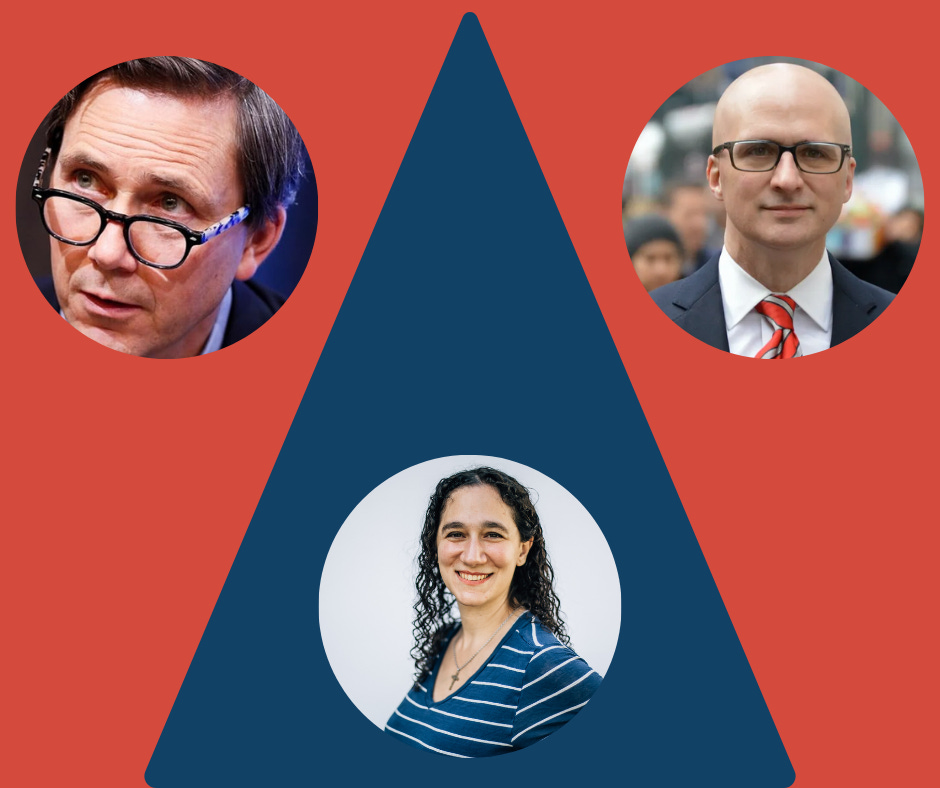Men on My Feminist Manifesto
Aaron Renn and Richard Reeves respond to my chapter on men
Next week, I’ll be speaking at the Notre Dame de Nicola Fall Conference. Sound off in the comments if I’ll see you there!
It was my pleasure to participate in a Fairer Disputations symposium with Aaron M. Renn and Richard V Reeves. Faired Disputations published an excerpt from The Dignity of Dependence’s chapter on men (“Men into the Breach”), and invited Aaron and Richard to respond.
If you’re a paid subscriber to Fairer Disputations, you can read the whole thing below. For everyone on the fence, I’ve got a teaser of each contribution.
From Richard:
Sargeant is right to say that the “paradigmatically womanly kind of risk” physical risks taken by mothers remain highly salient, above all in childbearing. She is also right that the requirement for fathers to put their bodies on the line for their families has radically diminished in modern societies, for good reasons related to social norms and laws.
But I think she understates the remaining opportunities for men to demonstrate physical courage in the service of others. “When men choose to step into danger, today it is more often as a shared competition with other men, in sports or foolish stunts,” she writes. “There is no beneficiary of their appetite for risk.” I disagree. I’ve just visited the site of the World Trade Center, where it is very hard not to notice that all 343 of the firefighters who died attempting to save others were men. The reason that men account for more than 90 percent of occupational deaths is that they account for the overwhelming majority of workers in the most dangerous jobs, including among first responders.
From Aaron:
Men are supposed to make their mark in the world, not just have the world make its mark on them. This requires some degree of legitimate autonomy and agency in order to be able to decisively act. It’s important for men’s autonomy not to be denigrated.
At the same time, such autonomy is not without limits. Odysseus was not free to abandon his wife to her suitors (protection). The Greeks had to honor their pledges to fight for the return of Helen. In gathering resources for himself, this comes with the obligation for the man to share them with his family and community (provision). As Gilmore notes of the New Guinea “Big Man,” “The mark of the authentic Big Man is that he is a large-scale net producer, always giving away more than he receives.”
The type of autonomy championed by manosphere influencers like Andrew Tate is a parody of the real thing. Men were not made for the autonomous pursuit of pleasure and material accumulation without any obligation to other people.
And from me, in reply:
I appreciate Renn’s emphasis that men need freedom for excellence, not just the open-ended freedom of autonomy. Vows and unchosen family ties channel a man’s strength toward particular people and ensure he cannot walk away from them and remain a man of honor. They force him to develop his strengths to keep up with his family’s changing needs. Children are more willing than adults to explore the edge of their mastery and fail forward. Adults can find that their obligations to others give them a reason to overcome their pride and, like a child, be willing to try something they are not yet good at for the sake of future mastery.
Finally, I was delighted that Reeves gave a nod to the Carnegie Hero Fund (and I’m privileged to know a man who was nominated for the medal for his river rescue). The question is: what forms men to be ready for those moments of sudden, urgent need? Part of it is physical readiness and training. But the other part is moral formation—the instinct that Darren Geist showed, when he heard a crash outside his home and assumed it fell to him to run outside to help. In a moment of crisis, there’s seldom time for rational reflection and weighing of duties.
A hero is made by habit—consistently being willing to be interrupted, holding his strength in trust for others.




It's possible I see the world differently than other people, but from a past comment from a reader on this substack, my habit of trading phone numbers with strangers I meet in public places and giving them my address and inviting them to dinner regularly may seem dangerous to some people.
I'm not seeking out gang members to invite to dinner, but we're not in a low crime city or neighborhood either. We've had dinner guests from different socioeconomic backgrounds and different countries (visiting or who immigrated). Some new guests are friends of friends and some were just people I met at the library. For me, it's a blessed and rewarding life and I don't have anxiety about it. God is in charge and we feel he called us to this lived hospitality.
This seems a feminine coded risk to me, extending hospitality despite potential risks. I don't have to lift anything heavier than a casserole dish! It's a great life my husband and I have.
My favorite example in my life, outside of my husband, of men putting themselves at risk happened while white-water rafting more than 30 years ago. My group chose to continue on to the "dangerous part" of the route at the end, with much rougher water than the earlier parts. We were not super-experienced rafters. Our boat flipped and I was caught under it, disoriented and scared. I was rescued by four teenage boys who had decided to spend their Saturday hanging out in that area by the river, watching for people to help. I find that so heroic, and I'm forever grateful to them.